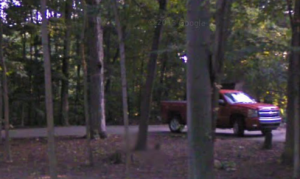Chuck Grassley: Insider Threat Program Poses Threat to Whistleblowers
Chuck Grassley rarely gets the credit he deserves for championing whistleblowers. But, while there have been notable exceptions, Grassley has long defended both generalized protections for whistleblowers, as well as whistleblowers themselves.
Yesterday, he gave a long speech on the Whistleblower Protection Act. As part of it, he laid out a number of ways President Obama’s Insider Threat detection program threatened whistleblowers.
He described how the FBI has refused to explain whether Insider Threat Program training adequately distinguishes between whistleblowers and inside threats. Just last week, FBI walked out in the middle of a briefing for Grassley and Pat Leahy!
Meanwhile, the FBI fiercely resists any efforts at Congressional oversight, especially on whistleblower matters. For example, four months ago I sent a letter to the FBI requesting its training materials on the Insider Threat Program. This program was announced by the Obama Administration in October 2011. It was intended to train federal employees to watch out for insider threats among their colleagues. Public news reports indicated that this program might not do enough to distinguish between true insider threats and legitimate whistleblowers. I relayed these concerns in my letter. I also asked for copies of the training materials. I said I wanted to examine whether they adequately distinguished between insider threats and whistleblowers.
In response, an FBI legislative affairs official told my staff that a briefing might be the best way to answer my questions. It was scheduled for last week. Staff for both Chairman Leahy and I attended, and the FBI brought the head of their Insider Threat Program. Yet the FBI didn’t bring the Insider Threat training materials as we had requested. However, the head of the Insider Threat Program told the staff that there was no need to worry about whistleblower communications. He said whistleblowers had to register in order to be protected, and the Insider Threat Program would know to just avoid those people.
Now I have never heard of whistleblowers being required to “register” in order to be protected. The idea of such a requirement should be pretty alarming to all Americans. Sometimes confidentiality is the best protection a whistleblower has. Unfortunately, neither my staff nor Chairman Leahy’s staff was able to learn more, because only about ten minutes into the briefing, the FBI abruptly walked out. FBI officials simply refused to discuss any whistleblower implications in its Insider Threat Program and left the room. These are clearly not the actions of an agency that is genuinely open to whistleblowers or whistleblower protection.
Grassley raises concerns that the monitoring of intelligence community employees will help the IC track whistleblowers who communicate properly to Congress.
Like the FBI, the intelligence community has to confront the same issue of distinguishing a true insider threat from a legitimate whistleblower. This issue could be impacted by both the House- and Senate-passed versions of the intelligence authorization. Both include language about continuous monitoring of security clearance holders, particularly the House version.
Director of National Intelligence James Clapper seems to have talked about such procedures when he appeared before the Senate Armed Services Committee on February 11, 2014. In his testimony, he said:
We are going to proliferate deployment of auditing and monitoring capabilities to enhance our insider threat detection. We’re going to need to change our security clearance process to a system of continuous evaluation. . . . What we need is . . . a system of continuous evaluation, where . . . we have a way of monitoring their behavior, both their electronic behavior on the job as well as off the job, to see if there is a potential clearance issue. . . .
Director Clapper’s testimony gives me major pause. It sounds as though this type of monitoring would likely capture the activity of whistleblowers communicating with Congress.

